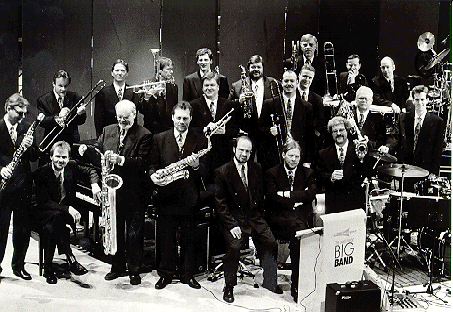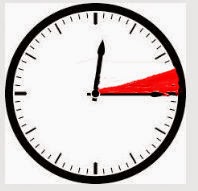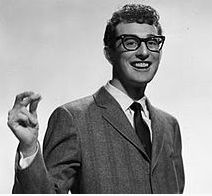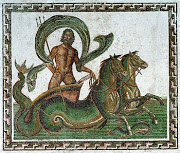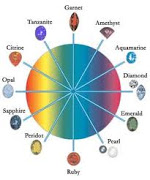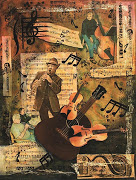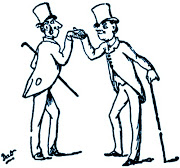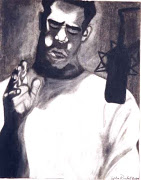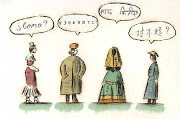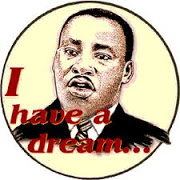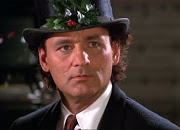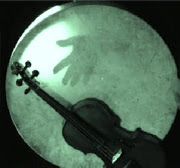Thursday, March 17, 2016
Martial: John Prine and Merle Haggard
Purchase: John Prine: Sam Stone
Purchase: Merle Haggard: A Soldier’s Last Letter
I’m taking a bit of creative liberty on our theme - martial - to talk about two songs concerning the military experience.
One song strikes me as poetic than musical, in the way it deals in stark imagery to show the aftermath of war and the kinds of wounds that don’t heal. The other is a bit of old-style country balladeering that unfortunately plays on cringe-inducing cliché and motif in a way that only country music can. A little on that idea before we get started. Sometimes, country music can be lazy—silly tropes repeated to the point that the simple use of an easily recognizable image stands blatantly for a resounding and universal symbol. Think about all the times you’ve heard the mention of American flags, mom, apple pie, Jesus and fast cars. I mean used seriously, without the requisite irony. A lot of country artists get away with lyrical murder, mining the same worn out themes and images – yet people fall for it, think formula makes for value. But, I guess people make John Grisham a bestseller, too, so when we look at music, sadly, quality is not the standout arbiter of quality.
But, this is not the case with John Prine, the old-soul minstrel and bard of American music. From his withered voice, to his minor key arrangements, Prine reminds me of troubadour of old, singing to tell a story, using words and story with the musical accompaniment as an afterthought. Let’s say this: Prine’s influence as a songwriter is beyond measure. Does he need a great voice, when the hand of God moves his pen? Probably not.
Sam Stone is a song about a veteran returning from an overseas war who comes back to his family with “shattered nerves” and “shrapnel in his knee.” Our soldier, Sam Stone, with a “Purple Heart and a monkey on his back”, turns to drugs to ease his pain. What we have is a story, told through the bleak imagery of isolation, emptiness and the lingering odd sensation of how one sees the world when they are high. What is most striking is the underlying idea that even though the battlefield is nowhere near, our protagonist is still in dangerous proximity to death. In reality, Sam Stone left one war behind and came home to another one, and it is this war with his own demons that finally kills him and leaves his family broken and abandoned.
Prine has always been interesting to me: his voice can be grating. I imagine a lot of people who don’t know Prine would be inclined to turn him off, much like they would hearing Dylan’s distinctive delivery. But, lyrically, he is unrivaled. Reading Prine is like delving into a modern Whitman, sans the listing and cataloging. This is the writer of the everyman, vulnerable to the failings of the human heart, of age and distress, of societies’ brutish business and the dangers found lurking in the landscape of our everyday world. His melodies are lush, complicated and complex, building from a simple phrase and growing outward to gorgeously orchestrated compositions. Deceptively simple. Subtle. Beautiful. John Prine’s music works in ways that is rare – more than songs, carrying the emotional weight of a poem.
Now, let’s move on to the other song. I feel a little ashamed calling any song by the great Merle Haggard cheesy, but A Soldier’s Last Letter is a classic, but it’s also classic silliness. Penned in the epistolary form, A Soldier’s Last Letter is just that: a last letter written from the battlefield, from a soon to be dead soldier to his mother. The first two stanzas deal in the classic motifs of duty and remembrance, while the second half of the song details the mother’s reaction to the letter, reading it long after her darling boy, the one she used to yell at for coming home with mud on his shoes, has been killed. It’s a pretty song, I suppose, but what gets me is the way it ends: the mother, distraught at the loss of her son, goes down on her knees to pray. She prays the God will watch over all the other sons, but she also prays: “…dear God, keep America free.”
It strikes me as odd that a song like A Soldier’s Last Letter is considered a classic. It is classic only in playing on the same silly tropes so many patriotic songs use: mom, freedom… It starts off interestingly – but to think a mother, in the immediate wake of learning her son is gone, still finds it in her heart to pray to keep America free? It’s the kind of song that evokes lots of cheers and chanting – patriotism, especially in a country song, is a notion vulnerable to misuse and to childish sentiment. You think about performers that bandy about the stars and stripes as part of their image rather than the hard fought and contentious concept that democracy and freedom really is, and conception gets muddy. Merle Haggard speaks to freedom, hard living and independent, rugged individualism. That’s great. That probably is American. But then what about some 10-cent jackass like Toby Keith, and his knee jerk patriotism, or Eric Church (who I do like, but I think his metaphors are bargain basement cheap) and you can see a difference. Perhaps country music has to delve into those overused ideas—it could be an essential part of the genre, just like something jumping out of the shadows is key to horror films. I don’t know.
I reluctantly use The Hag as a bad example - a silly song in an otherwise pretty great catalog - of what is frustrating in country music. I listen to a lot of modern country, by virtue of Spotify (I get to listen, rather than buy, so it’s easier than ever to get a feel for what is trending). And, I’ve been really bothered by how shallow a lot of it is - and how bad songwriting is so easily considered “good.” Merle isn’t a bad songwriter, by any stretch, though I have always hated Okie from Muskogee, and the conservative, asinine divisiveness of that song and the point it tries to make in attacking one set of values in favor of another, equally oddball set. But, it’s an old song now, a relic of an era.
So much of today’s country music comes off as lazy—overused clichés meant evoke the most predictable response. I guess those easily recognized values are best to create mass appeal. But, when you look at great writers and how they don’t ever achieve the status that so many lousy ones do, it can be frustrating. And make for some bad music.
Posted by Andy La Ray Gun at 7:56 AM View Comments Links to this post
Labels: John Prine, Martial, Merle Haggard, military
Tuesday, March 15, 2016
Martial: Military Madness
purchase [Military Madness]
In the USA, protests against the government's military involvement in the Vietnam War grew in strength throughout the 1960s and culminated with the US withdrawal in 1973. Although the rage against the government continued to the end of the war, 1968 to 1971 may have been the bitterest years: at the 1968 Democratic Convention in Chicago (President Johnson still in power), the protests raged out of control. Whereas the Johnson administration intially was inclined to play down the riots as mis-management by the Chicago police, the Nixon administration took it a step further and convened a grand jury that lead to the infamous Chicago Seven trials. Before long, the Nixon administration was calling protestors traitors, and in May of 1970, the National Guard ended up killing 4 student protestors at Kent State University in Ohio.
Released in 1970, Crosby, Stills and Nash's Deja Vu may have had the seeds of their political affiliation roiling uder the surface. But the message came across as more hippie-dom than political , the album featuring Flower-Power messages such as Woodstock, Almost Cut My Hair and Our House. By 1971, although the group was in the process of going their separate ways, they were each mostly overtly political: Ohio directly targets the afore-mentioned events. Chicago, likewise.
Graham Nash, for his part, penned Military Madness (as well as many other of the CSNY songs - Ohio included), in which he laments, but offers no solutions to, the troubles of his (soon to be) adopted country:
And after the wars are over
And the body count is finally filed
I hope that man discovers
What's driving the people wild
Military madness
Is killing your country
Nash didn't and couldnt offer solutions to the Military Madness (madness it was) of the Vietnam War - it was a madness that (likely , rightfully) directed the nation toward a more democratic sense of the power of one man's vote (culminating in Nixon's abdication - eventually). I leave it to your perception to see how this relates to the 2016 US elections.
And misc related ..
And ... better than most other YouTube versions:
Posted by KKafa at 3:23 PM View Comments Links to this post
Monday, March 14, 2016
MARTIAN: BORN TO BE WILD
I'd toyed with a tease, asking what the 'Wolf had to do with Mars, but I have way too much respect for my reader, hi, Mum, to insult you with that, the name of the writer of their classic hit being etched on the mind of every pop quiz aficionado. But did you know Mars Bonfire, for it was he, also released a later version, on his 1969 solo album, 'Faster Than the Speed of Life'?
Neither did I, nor that he had penned anything much else or worth. In truth, he hasn't, his pickings being decidedly slim, but, hell, if you had to only write one song, o would that it be this one, still a staple of any and every advertising agency needing a quick link to motor bikes, leather and rebellion.
Born to parents, Elmo and Annie Bonfire, both big fans of roman mythology, he was their youngest child, after elder sisters Venus and Juno, a fact that has never failed to astound me, were it true. Sadly and more prosaically, he was born Dennis McCrohan, already changing his name once to Dennis Edmonton as he and his brother formed the precursor band to 'Steppenwolf', before his more exotic nom de chanson came in. Gallingly, as 'The Sparrows' morphed into 'Steppenwolf', he had left, but his brother remained, on drums.
Luckily the anthemic nature of the song was way more successful than his career, to date the song appearing 102 times in films. (I trawled the list, somewhat desperately, seeking the sight of any of his other songs, there being but one reference, and that uncredited. How that must have hurt.)
And cover versions are equivalently plentiful, with at least 63. Time for a couple? Here are two of the quirkiest together with one just plain daft........
(Wilson Pickett, with secret added ingredient of Duane Allman, to give a touch of biker 'credibility', an irony given his later death thereby, in an accident)
(80s UK popstrel Kim, daughter of 50s rocker Marty, Wilde)
(Miss Piggy from the Muppets. With some bloke.)
Buy some Mars, make his day!
Posted by Retropath at 1:48 PM View Comments Links to this post
Labels: Born to be Wild, Duane Allman, Kim Wilde, Mars Bonfire, Martian, Miss Piggy, Ozzy Osbourne, Wilson Pickett
Friday, March 11, 2016
Martial: Girl From Mars
Purchase: Ash, Girl From Mars
Posted by Andy La Ray Gun at 8:38 AM View Comments Links to this post
Labels: Ash, Brit Pop, Devil Grirls From Mars, Girl From Mars, Marah, Mars
Wednesday, March 9, 2016
Martial: The Mars Volta

The Mars Volta: L'Via L'Viaquez (live)
[purchase Frances the Mute]
First, a little plug—In addition to continuing to contribute here, I have started a new blog to allow me to write about music and life, without being limited by the bi-weekly themes we have here. Please check out Another Old Guy....Writing About Music, and like its Facebook page. Thanks.
I’ve written in the past about the pleasure that I have gotten from going to concerts with my kids. There was a brief period in each of their lives where they were old enough to want to go to shows, but not old enough to go there by themselves, or where the location was deemed inappropriate for attendance without parental supervision. And, being the lover of music that I am, I often was designated (or volunteered) to be the supervising parent.
When my son was in his early teens, he and his friends became fans of The Mars Volta, and I had to agree that they were an interesting band. It is always interesting to play “spot the influence” when you listen to new artists, and the first thing that came to mind when I heard The Mars Volta was King Crimson, due to their complex song structures and the mix of rock, jazz and avant-garde sounds. One difference, though, was that while later Crimson lineups incorporated some elements of New Wave music, they never really adopted more hard core punk sounds, or emo. The Mars Volta, with their roots in At The Drive-In, though, cite, among many others (including King Crimson), Throbbing Gristle and Black Flag, as influences.
Although I had only listened to a relatively small amount of their music, I was intrigued, and when my son and his friends wanted to go see the band, at the Roseland Ballroom in NYC in 2005, it was not a hard sell to get me to drive them in, see the show (and provide appropriate supervision) and drive them home.
It was quite an experience. As I thought about writing this piece, I tried to remember back 11 years (almost exactly), to how I felt about the show, and I found this review, which pretty much nailed my experience:
Admittedly, their “noodling” did get boring at first (I wondered if I was going to like the show during the first 20 minutes), but I actually grew to like it more and more as time went on. What seemed a little boring at first, completely swept me away with it by the end.
Another influence that added to The Mars Volta’s eclectic mix is Latin music, which is no surprise considering the background of a number of the members. For the show that we saw, the band invited salsa music legend Larry Harlow to join them on stage. You can see him in the blurry picture above that I found online. Harlow, who is not Latino, but is actually from an Eastern European Jewish family, has had a long, celebrated career as a multi-instrumentalist (with piano a specialty), songwriter and producer in the salsa world, and is nicknamed “el Judio Maravilloso.”
Harlow’s piano adds a traditional Latin touch to the great song L’Via L’Viaquez, both on the album cut on which he played, and live, as you can hear in the featured version.
I haven’t listened to The Mars Volta much recently, and I don’t think that my son does, either, but whenever one of their songs pop up on my iPod’s random shuffle playlist, I remember both how inventive they are, and that night at the now, regrettably closed, Roseland Ballroom.
Posted by J. David at 10:00 AM View Comments Links to this post
Labels: At The Drive-In, Black Flag, king crimson, Larry Harlow, Martial, The Mars Volta, Throbbing Gristle
Monday, March 7, 2016
Martial: Feel Like I'm Fixin' to Die
purchase Country Joe "Feel Like ..."
You've likely seen "The Martian" and you may have read some of the debate regarding the accuracy of the depicted storms on the planet (Yes, there appear to be winds: No, they don't appear to be as severe as shown.) However, embedded in the psyche/definition of Mars, is a certain amount of stormy violence. Mars is the Roman god of war. A rather stormy entity.
And then, there is the whole Venus/Mars conceit: men are stormy/warlike; women are beautiful and pacific - but, it is opposites that attract. It's human nature for men to be martially inclined and for women to be ... "lovely". After all, Venus is the Roman god of love, and the related word roots apparently go back as far as Sanskrit - leaving us with War and Love/Aggression and Beauty. Ergo, it seems logical that you could expect a plethora of "ballads & odes" in popular culture/music/literature that delve into our theme this week. And, there are many - depending on the path you take through the memes related to Martial/Martian/Mars-ian.
I guess I chose this here post partly because of my age, and partly because of my beliefs: I would have registered as a "Conscientious Observer" if I had not been exempt from the draft as someone who was eligible for a one-way trip to Vietnam on my 18th birthday back in the early '70s. Sadly, I was a fraction too young to get parental permission to attend Woodstock, but - well before the movie and related hype - was following Country Joe "Fish". And so his iconic "Fish Cheer" and "Feel Like I'm Fixing to Die" represented much of what I and much of my generation believed in. Because, the end result of much that is martial is that someone has to perish. Often - on the personal level - in vain - despite the glories of nations and ideologies. And that's not my bag. Perish? We all do. To "support" a misguided government's agenda? Ask Country Joe. Talk about stormy relationships with your society ... Sheesh!
Posted by KKafa at 12:17 PM View Comments Links to this post
Labels: Country Joe, Martial, Storms
Thursday, March 3, 2016
Storms: Two from Creedence Clearwater Revival
A pair of weather-related tunes from the great Creedence Clearwater Revival: Have You Ever…and Who’ll Stop…The Rain.
One of the great rock bands of the 1960s, the defining term rock being used here to delineate music of that era that is unadulterated by the tripping trappings of psychedelic flower power, and paying homage back to blues and folks roots. Creedence’s output was backbone straight front porch swinging country-blues-folk tinged rock, a pure specimen in an experimental time. Troubled by forces from within and without, CCR didn’t last nearly as long as they should have, but what they put out stands as the litmus test for the pure and good in rock ‘n roll.
I struggle with this blog sometimes—should I be trying to unearth rare gems, from unknown and unsung bands, and give them some exposure, or is it OK to dwell in the past and give the sometimes all to familiar and taken for granted a fresh listen? I don’t have an answer for that quandary. I do love going back and really digging into a song though, even when it is one I've heard so often that it has become a comforting background soundtrack rather than a song that gives one pause.
Who’ll Stop the Rain and Have You Ever Seen the Rain are songs that you know, that you can sing along to, that you’ve heard a million times or more as staples of classic rock radio. When I did a Spotify search for “Who’ll Stop the Rain”, it was amazing how many times it has been covered, and in so many different styles. So what is there to say about the songs we’ve heard over and over? The universality of songs like these two from CCR strikes me as something worth nothing and exploring. Even if you’ve heard a song it is worth taking another listen. Sometimes, it’s not about shedding new light so much as appreciating a song by rehearing it, giving it a bit of an investigatory listen with a finely conditioned ear.
Released exactly one year apart, let’s look first at Who’ll Stop the Rain. This is a classic rock/folk ballad, and it listens like alt-country before alt-country was really a thing. Lyrically, Who’ll Stop the Rain takes on the classic form of a lament. And while it doesn’t delve into the realm of intense grief or mourning, there is sadness to this song about answers that haven’t arrived or appeared, despite the nature of the search and the fact that the search has lasted for what might be a lifetime. Despite its lack of clarity, there is universality of optimism giving way to sadness that speaks to the era it was written in. One can’t help but hear the song as a reference to the broken optimism of the 1960’s flower power and peace movement. The ‘60s are great to look at as a sweeping social movement—the changes that were wrought from turbulent times were amazing and I think the power of the times reverberates to this day. But (and I am saying this as someone who wasn’t part of that generation, so I’m no expert), it seems that certain influences—drugs being the chief one—corrupted that movement and took from it a certain power that it had to make generation-spanning changes. But, that’s just my opinion. The '70s followed the '60s Followed by the '80s, to the '90s to now…times change, but the course of human events (wars, crime, poverty) follows the same sad course…maybe the world is just meant to be that way. Still, maybe I am looking too hard at the song, asking it to be something it’s not. It’s an imagistic little fable, and maybe it’s just talking about the weather?
Bruce Springsteen and the E Street Band traditionally open outdoor shows with the song when it is raining. I saw Bruce on the Wrecking Ball Tour in Munich, Germany a few years ago, and it was a frigid, rainy day in May. I was milling around outside the stadium, thinking I had plenty of time to get into my seats, when I heard the opening chords of “Who’ll Stop the Rain” and realized—holy crap! Bruce is on stage! The rain did not stop that evening, and it was the coldest show I’ve ever been to. They did do Born In The USA from top to bottom as a thank you for coming out in the rain—pretty incredible.
1971’s Have You Ever Seen The Rain, from Pendulum, is yet another fittingly glum track that explores the melancholy that so often accompanies images of the rain. This track is a little more straightforward in terms of interpretation. It has been written that the song is a lament, again, but one directly related to the “fading idealism” of the 60s, that I talked about earlier. But, John Fogarty himself has said that the song is about the tension in CCR that led to Tom, his brother, leaving the band. Also central as a theme is the well-documented fact that despite their popularity and success in the charts, CCR were still miserable. The most revealing line is simple, and as a metaphor, it doesn’t have to work too hard to get the point across: “Have you ever seen the rain/ Coming down on a sunny day.” Not exactly TS Elliot, but then profundity need not be draped in mystery.
CCR were a troubled band, despite being famous and achieving their rock n roll dreams. It’s been sung about before—fame and riches do not guarantee happiness. The sentiment, that it is sometimes hard to be happy despite the obvious reason one should be, is a universal idea. Fans and critics tend to jump all over ‘whiny rock stars’ for complaining about finding the troubling side to the dream the rest of us would give up anything to achieve (think Kurt Cobain and Eddie Vedder). Yet, those most vocal about the sobering reality of a dream come true are the voices we tend to sing along with the most.
I think certain songs, because they give utterance to the feelings we all share, but don’t always admit to, are all the more popular because they can speak for us. And we can sing along, which means we don’t have to talk about it…
Posted by Andy La Ray Gun at 7:34 AM View Comments Links to this post
Labels: Bruce Springsteen and the E Street Band, creedence clearwater revival, Have You Ever Seen the Rain, Storms, Who'll Stop the Rain














